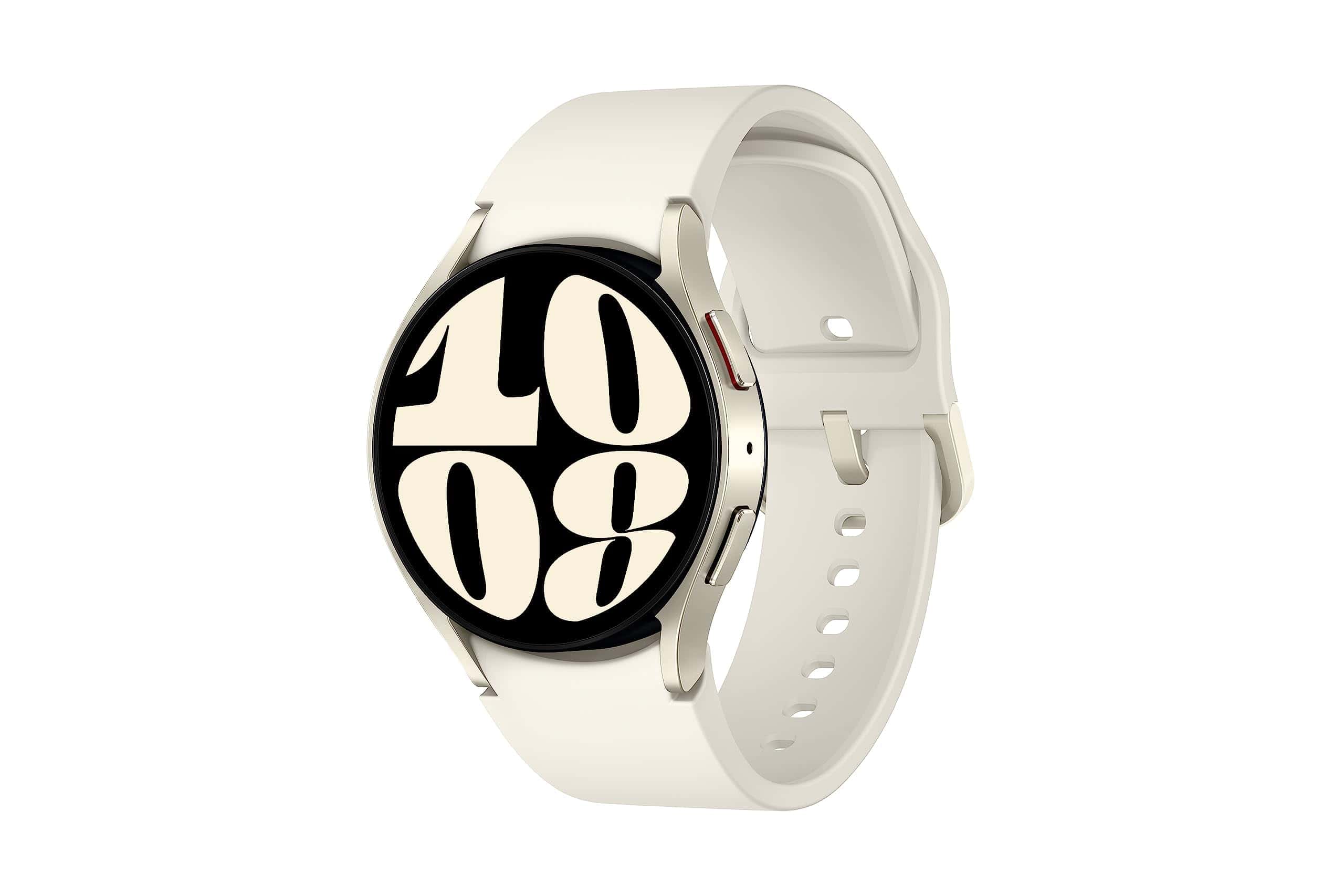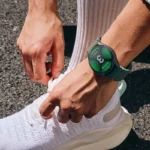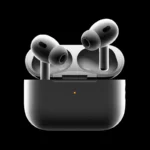Keeping fit and monitoring our health has been made easier with wearable fitness technology. Devices like the Apple Watch Series 10 and Oura Ring Gen 4 offer different features to meet various needs, from tracking heart rate, steps, and sleep patterns in real-time. In today’s health-conscious world, wearable fitness technology has truly changed the game, giving us valuable insights into our activity levels, vital signs, and sleep patterns.
With options ranging from high-end models like the Garmin Epix Pro to budget-friendly choices like the Xiaomi Mi Band 8, these devices provide accurate data and easy integration with health apps. Whether you are a dedicated athlete or simply trying to stay active, a fitness tracker is a great addition to your gear.
Top Fitness High-Tech Fitness Trackers

Here’s the table “Fitness Trackers For The Tech-Savvy: Ranked” with the latest devices in each series:
| Rank | Device | Tech Savvy Features | Category | Why We Picked It |
|---|---|---|---|---|
| 1 | Apple Watch Series 10 | Seamless Apple integration, ECG, blood oxygen, fall detection, vast app library | Smartwatch | Combines cutting-edge health tech with a user-friendly interface in Apple’s latest flagship. |
| 2 | Samsung Galaxy Watch 6 | Body composition, advanced sleep tracking, ECG, Google Assistant | Smartwatch | Samsung’s top-tier smartwatch offers a sleek design and robust health features for Android users. |
| 3 | Apple Watch Ultra 2 | Dual-frequency GPS, depth gauge, largest Apple Watch display | Smartwatch | Rugged and feature-packed for adventurers and athletes. |
| 4 | Garmin Venu 3 | Bright AMOLED display, advanced workout analysis, body battery, Garmin Pay | Smartwatch | Stylish design with comprehensive health and fitness tracking. |
| 5 | Fitbit Charge 6 | Built-in GPS, ECG, Daily Readiness Score, Fitbit Pay | Fitness Tracker | Fitbit’s most advanced tracker with a focus on optimizing workouts and recovery. |
| 6 | Oura Ring Gen3 | Advanced sleep staging, HRV monitoring, temperature sensing | Fitness Tracker | Discreet and accurate health tracking with personalized insights. |

When you’re looking for the latest and greatest in fitness trackers here are some top picks:
Smartwatches:
- Apple Watch Series 10: Apple’s latest flagship smartwatch boasts a larger display, new action button, and advanced health sensors, including a water temperature sensor. It’s the most feature-rich option for iPhone users.
- Why it’s tech-savvy: Seamless integration with Apple ecosystem, ECG app, blood oxygen monitoring, fall detection, and access to a vast app library.
- Apple Watch Ultra 2: A rugged smartwatch designed for adventurers and athletes. It has a larger, brighter display, a durable titanium case, and the longest battery life of any Apple Watch.
- Why it’s tech-savvy: Dual-frequency GPS for precise location tracking, a depth gauge for diving, and advanced workout metrics.
- Samsung Galaxy Watch 6: Samsung’s latest smartwatch offers a sleek design, a rotating bezel for navigation, and comprehensive health tracking features. It’s a great option for Android users.
- Why it’s tech-savvy: Body composition analysis, advanced sleep tracking with sleep coaching, ECG monitoring, and Google Assistant integration.
- Garmin Venu 3: This stylish smartwatch combines fashion with function. It features a bright AMOLED display, advanced health and fitness tracking, and built-in GPS.
- Why it’s tech-savvy: Detailed workout analysis, sleep score with insights, body battery energy monitoring, and Garmin Pay for contactless payments.
Fitness Trackers:
- Fitbit Charge 6: Fitbit’s most advanced tracker offers a color touchscreen, built-in GPS, ECG app, and comprehensive health metrics.
- Why it’s tech-savvy: Daily Readiness Score to optimize your workouts, stress management tools, and Fitbit Pay.
- Oura Ring Gen3: This discreet ring tracks your sleep, activity, and recovery with impressive accuracy.
- Why it’s tech-savvy: Advanced sleep staging, heart rate variability (HRV) monitoring, temperature sensing, and personalized insights.
Important Considerations:
- Compatibility: Make sure the fitness tracker is compatible with your smartphone (iOS or Android).
- Features: Consider which features are most important to you, such as GPS, heart rate monitoring, sleep tracking, and contactless payments.
- Style: Choose a design that fits your personal style and preferences.
- Budget: Fitness trackers range in price from budget-friendly to premium.
By considering these factors and exploring the options above, you can find the perfect fitness tracker to elevate your tech-savvy lifestyle!
Empowering Your Health Journey: The Rise of Wearable Fitness Tech
Wearable fitness technology is rapidly transforming how we track and manage our health. These devices, worn on the body, collect valuable data about our activity levels, vital signs, and sleep patterns, providing insights that can help us make informed decisions about our well-being.
Types of Wearable Fitness Tech
The market is teeming with various wearable fitness tech, each catering to specific needs and preferences. Some popular categories include:
- Fitness Trackers: These basic devices track steps, distance, calories burned, and sometimes heart rate. They offer a simple and affordable entry point into wearable health monitoring.
- Smartwatches: These versatile devices combine the functionality of a fitness tracker with features like notifications, music control, and even GPS tracking. They often boast more advanced health metrics like blood oxygen levels and ECG readings.
- Smart Clothing: This emerging category embeds sensors directly into garments to track movement, posture, and other biometrics. They offer a seamless and comfortable way to monitor your health.
- Heart Rate Monitors: These chest straps or wrist-worn devices provide accurate heart rate data, essential for optimizing workouts and tracking cardiovascular health.
- GPS Sports Watches: Designed for athletes and outdoor enthusiasts, these watches track distance, pace, elevation, and other metrics relevant to specific sports like running, cycling, or swimming.

Features and Benefits
Wearable fitness tech offers many features and benefits that can motivate and empower individuals to take control of their health:
- Activity Tracking: Track steps, distance, calories burned, and active minutes throughout the day.
- Heart Rate Monitoring: Monitor heart rate continuously or during workouts to optimize training and assess cardiovascular health.
- Sleep Tracking: Analyze sleep patterns, including duration, stages, and quality, to improve sleep hygiene.
- GPS Tracking: Track routes, distance, and pace for outdoor activities like running, cycling, and hiking.
- Notifications and Reminders: Receive reminders to move, drink water, or take medications, helping you stay on track with your health goals.
- Personalized Insights: Get personalized insights and recommendations based on your data, helping you make informed decisions about your health.
The Future of Wearable Fitness Tech
The future of wearable fitness tech is bright, with new and exciting innovations on the horizon. We can expect more advanced sensors, improved accuracy, and greater integration with other health platforms.
Wearable Fitness Tech Table
| Device Type | Features | Benefits | Examples |
|---|---|---|---|
| Fitness Tracker | Step tracking, distance, calories burned, heart rate monitoring | Affordable, easy to use, basic health tracking | Fitbit Inspire, Xiaomi Mi Band |
| Smartwatch | Fitness tracking, notifications, music control, GPS tracking, advanced health metrics (ECG, SpO2) | Versatile, feature-rich, comprehensive health tracking | Apple Watch, Samsung Galaxy Watch |
| Smart Clothing | Movement tracking, posture monitoring, biometrics | Seamless, comfortable, continuous health monitoring | Hexoskin, Athos |
| Heart Rate Monitor | Accurate heart rate data | Essential for optimizing workouts, assessing cardiovascular health | Polar H10, Garmin HRM-Pro |
| GPS Sports Watch | Distance, pace, elevation tracking, sport-specific metrics | Designed for athletes and outdoor enthusiasts, detailed performance tracking | Garmin Forerunner, Polar Vantage |
Key Takeaways
- Wearable fitness tech makes tracking health easy and accurate.
- Models range from high-end to budget-friendly, suiting various needs.
- These devices integrate with health apps for a seamless experience.
Evolution of Wearable Fitness Tech
Wearable fitness technology has changed greatly over the past decades. From simple step counters to AI-powered smartwatches, these devices help people stay active and monitor their health effectively.
From Pedometers to Smartwatches
In the 1960s, pedometers were the first wearable fitness gadgets. These small devices only counted steps. They helped people stay aware of their daily movement. The 1970s brought more innovation, including early digital watches that introduced timing features useful for runners.
Fast forward to today, smartwatches like the Apple Watch Ultra and the Samsung Galaxy Watch 6 can track heart rates, sleep patterns, and even detect falls. These advancements have made it easier for people to monitor their health in more detailed ways.
Integrating AI for Personalized Fitness
AI has greatly improved wearable fitness tech. With AI, devices can suggest personalized workout routines and provide custom health tips. For example, the Fitbit Charge 6 and Garmin Forerunner 165 use AI to analyze user data and give fitness advice.
Wearables like the Oura ring offer insights into sleep quality and readiness scores. AI helps by processing a lot of data quickly and giving users suggestions that fit their individual needs, making workouts more effective and health monitoring more precise.
Frequently Asked Questions
When considering wearable fitness tech, people often ask about key features, how the devices measure activity, and which trackers are the most accurate.
What are the key features to look for in a wearable fitness tracker?
Look for heart rate monitoring, GPS tracking, sleep tracking, and water resistance. Battery life and compatibility with your devices also matter. Some trackers offer advanced features like ECG monitoring or stress tracking.
How do wearable fitness devices measure physical activity?
They use sensors such as accelerometers and gyroscopes to detect movement. Heart rate sensors monitor your pulse. GPS tracks your location and speed. These data points help calculate steps, distance, and calories burned.
Which fitness tracker is known for having the highest accuracy?
The Garmin Forerunner series is known for its high accuracy, especially for runners. It offers precise GPS tracking and reliable heart rate monitoring.
What advancements have been made in wearable fitness technology in recent years?
Recent improvements include advanced health sensors like ECG and SpO2. There are now features for stress tracking and advanced sleep analysis. Battery life has also become longer.
How do minimalist fitness trackers compare to fully-featured ones?
Minimalist trackers are lighter and simpler. They focus on basic activity tracking and often have longer battery life. Fully-featured trackers offer more data and advanced health metrics, but they might be bulkier and need frequent charging.
What are the benefits of using a fitness tracker bracelet over other forms?
Fitness tracker bracelets are convenient and easy to wear all day. They are often more comfortable than clip-on devices. They usually offer more features compared to fitness rings or smartwatches designed mainly for other purposes.







